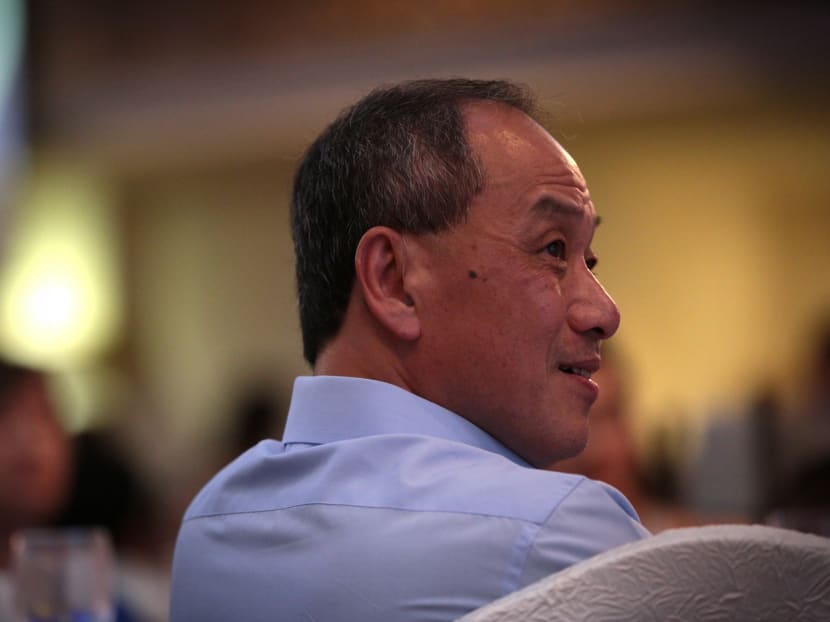Low Thia Khiang: From teacher to opposition icon
SINGAPORE – Mr Low Thia Khiang, a former teacher turned businessman, joined the Workers' Party (WP) at the age of 26. He was the election agent for then-WP chief J B Jeyaretnam when he successfully defended Anson constituency in the 1984 General Election (GE) – a ward which Mr Jeyaretnam won in a 1981 by-election, in the process breaking the People’s Action Party’s 15-year monopoly of Parliamentary seats.

Mr Low Thia Kiang first entered Parliament after winning in Hougang constituency in the 1991 GE, defeating PAP candidate Tang Guan Seng. photo: Jason Quah/TODAY
SINGAPORE – Mr Low Thia Khiang, a former teacher turned businessman, joined the Workers' Party (WP) at the age of 26. He was the election agent for then-WP chief J B Jeyaretnam when he successfully defended Anson constituency in the 1984 General Election (GE) – a ward which Mr Jeyaretnam won in a 1981 by-election, in the process breaking the People’s Action Party’s 15-year monopoly of Parliamentary seats.
Mr Low first entered Parliament after winning in Hougang constituency in the 1991 GE, defeating PAP candidate Tang Guan Seng.
He went on to be re-elected as Hougang MP for another three elections, establishing a reputation as a fiery speaker and a shrewd politician with strong grassroots appeal. It has been said that Mr Low would visit all the funeral wakes held in his constituency to offer his condolences, and listen to the families’ concerns.
In the 2011 GE, he ventured out of the WP stronghold, and led a WP “A” team to a historic victory in Aljunied Group Representation Constituency (GRC). The WP retained the GRC in the last GE held in 2015, albeit with a narrower margin.
Mr Low became the Republic’s de facto Opposition leader after Mr Chiam See Tong lost in the 2011 GE where he also moved out of his long-time Potong Pasir ward, to lead a Singapore People’s Party team to contest Bishan-Toa Payoh GRC. Mr Chiam, 82, had been in Parliament for 27 years.
Incumbent Hougang MP Png Eng Huat paid tribute to Mr Low’s “direct” style. “He does not engage in a game of pretence,” he said. “He has a wealth of experience that is honed from the school of hard knocks.”
Political analysts called Mr Low an Opposition icon who has left a mark on the annals of Singapore’s political history, along with Mr Chiam and Mr Jeyaretnam.
Mr Low, nevertheless, is a clear frontrunner when it comes to electoral success: Under his watch as secretary-general, the WP has increased its number of Parliamentary seats from one to nine, including three Non-Constiteuncy Members of Parliament (NCMPs).
National University of Singapore political scientist Bilveer Singh called Mr Low a “historical political figure”, while Singapore Management University law don Eugene Tan described him as a “political entrepreneur in a one-party dominant system”.
Noting that Mr Low ran a tight ship with the WP, Assoc Prof Tan said: “The WP's sense of cohesion is admirable. He was not afraid to make tough calls and was a political strategist par excellence.”
Still, for all of Mr Low’s feats, some analysts felt the saga over the financial management lapses of the WP town council – which has dominated headlines and led to civil suits against several WP leaders, including Mr Low – was a blot on his copybook.
Mr Low, WP chairman Sylvia Lim and WP assistant secretary-general Pritam Singh are the WP leaders facing civil law suits from an independent panel appointed by Aljunied-Hougang Town Council (AHTC), as well as by Pasir Ris-Punggol Town Council, which now manages the affairs of one-time WP ward Punggol East.
Institute of Policy Studies deputy director for research Gillian Koh said: “(Mr Low) is standing down at a time when the ramifications of that still hang as a dark cloud over his head and that of the other key leaders in WP.”
Nanyang Technological University sociologist Woo Jun Jie felt that the AHTC issues showed his “seeming lack of control over the actions of people he had appointed” to manage the estates.
Writing on Facebook on Saturday (Nov 4), former WP NCMP Yee Jenn Jong made clear that he disagreed with views in some quarters that Mr Low’s stepping down “has something to do with the impending town council law suit”. “The plan for succession was laid out long ago and implemented in steps,” he said.











